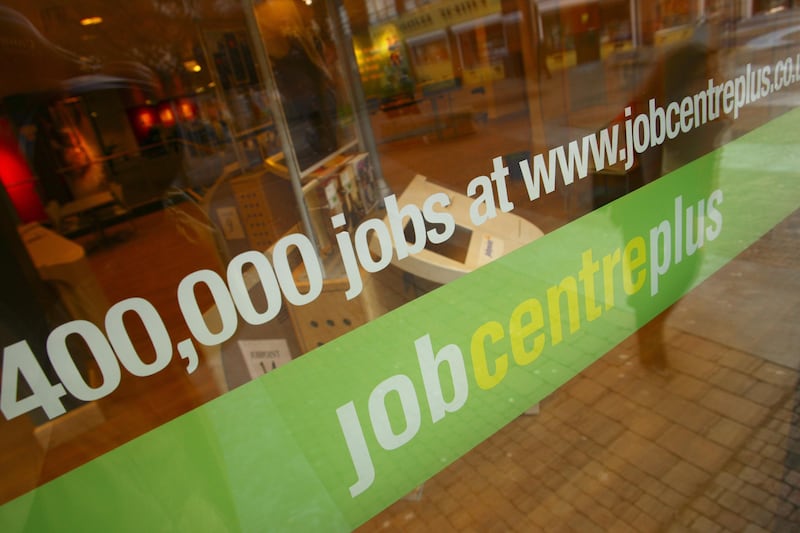THE claimant count in Northern Ireland decreased for third consecutive month in June as the number of people claiming unemployment benefits fell by 600 to 36,700.
The north's unemployment rate now stands at 5.9 per cent, which is a quarterly decrease of 0.5 per cent
It means the number of people claiming unemployment related benefits has fallen by 28,000 since the most recent peak in February 2013 according to the latest Labour Market Report published by the Northern Ireland Statistics & Research Agency.
But the number of people leaving the register in the 12-month period has slowed from 10,500 to June 2015 to 7,200 in the recent year to June 2016.
The proportion of people aged 16 to 64 in work increased over the quarter and over the year to 69 per cent, which remained lower than the record UK employment rate (74.4 per cent).
However, economic inactivity in the north, at 26.6 per cent, is still noticeably higher than that in the UK (21.6 per cent).
A total of 1.65 million people are unemployed in the UK as a whole, a fall of 54,000 over the quarter and 201,000 compared with a year ago, giving a jobless rate of 4.9 per cent.
The jobless total is now the lowest for eight years, while the rate is the lowest since the summer of 2005.
But the claimant count, including those on Jobseeker's Allowance, increased by 400 last month to 759,100, the fourth consecutive monthly rise.
Job vacancies were 10,000 down, to 747,000, the latest data from the Office for National Statistics showed.
Average earnings increased by 2.3 per cent in the year to May, 0.3 per cent up on the previous month.
ONS statistician Nick Palmer said: "The labour market continued to strengthen in spring 2016, with record employment and the unemployment rate at its lowest since 2005.
"None of today's headline figures cover the period since the result of the EU referendum became known."
Other figures showed that the number of people classed as economically inactive has fallen by 46,000 to 8.8 million, the lowest for 13 years.
The figure, which includes those looking after a relative, on long-term sick leave, or who have given up looking for work, showed a record low of 5.5 million for women.
Full-time employees worked an average of 37.5 hours a week, slightly more than a year ago.






